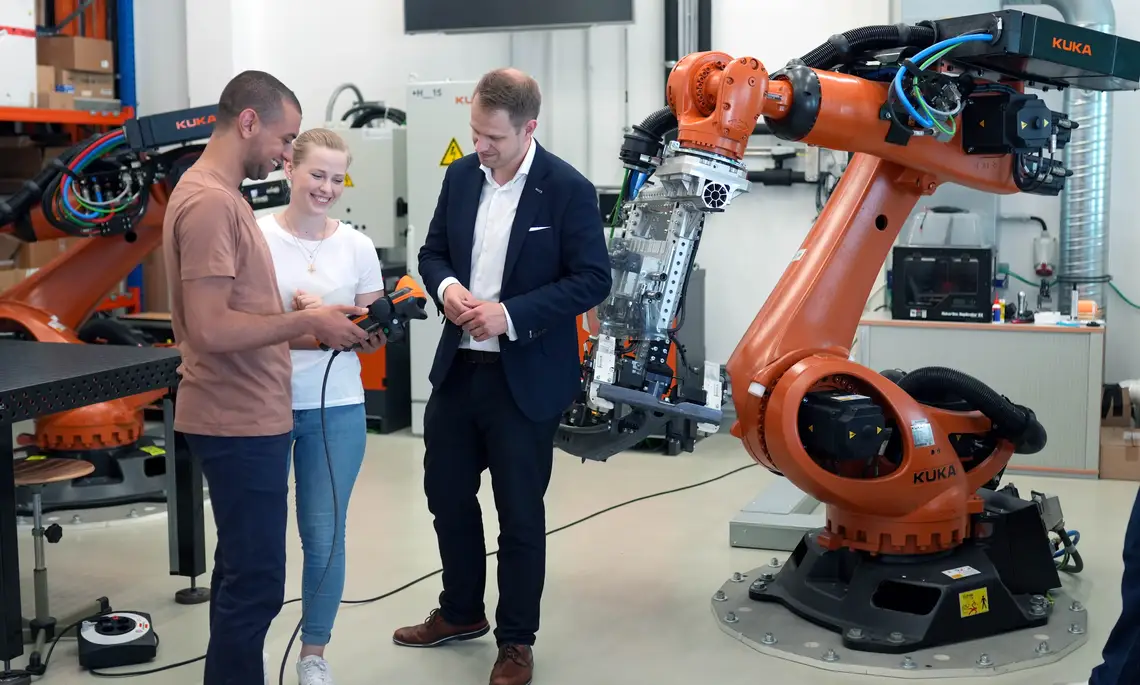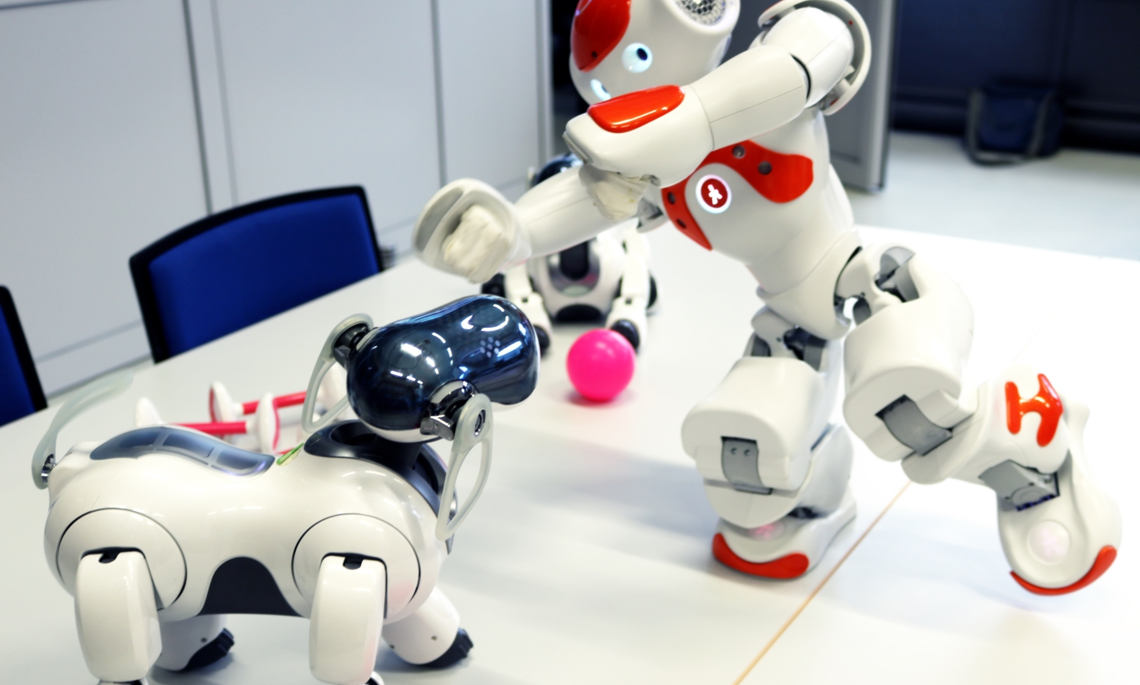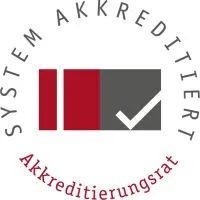Even today, robots are already assembling devices, taking over complex thinking tasks, and are already caring for people: Robots have become an indispensable part of today's world. The majority of robots do their work in factories.
However, there are a large number of other devices that are also considered robots: For example, autonomous, mobile robots that can carry out explorations, or walking robots. There are also household and service robots that can be used as vacuum cleaners, window cleaners or lawnmowers. Or robots that resemble humans or animals. They are designed to adapt to and interact with people, for example to provide them with information. They are used in the care of elderly and disabled people or in the care of children. Artificial intelligence is playing an increasingly important role not only in these social robots, as they are expected to react flexibly to human needs. The latest developments therefore focus on the generation and collection of sound knowledge and data insights at machine level. The machine can learn from its human operators and then improve performance. Within the next couple of years, almost half of the newly deployed industrial robots are expected to be equipped with at least one intelligent function such as predictive analytics or autonomous perception. AI-supported collaborative robots (cobots) will become increasingly important in the future in order to create healthy and safe living and working conditions that have less impact on the environment and achieve more sustainable working conditions in factories. It is predicted that the market for consumer robots will double. The next generation of AI-based robots will focus less on physical tasks and more on teaching and interacting with family members.









![[Translate to English:] Logo Akkreditierungsrat: Systemakkreditiert](/fileadmin/_processed_/2/8/csm_AR-Siegel_Systemakkreditierung_bc4ea3377d.webp)








![[Translate to English:] Logo IHK Ausbildungsbetrieb 2023](/fileadmin/_processed_/6/0/csm_IHK_Ausbildungsbetrieb_digital_2023_6850f47537.webp)


